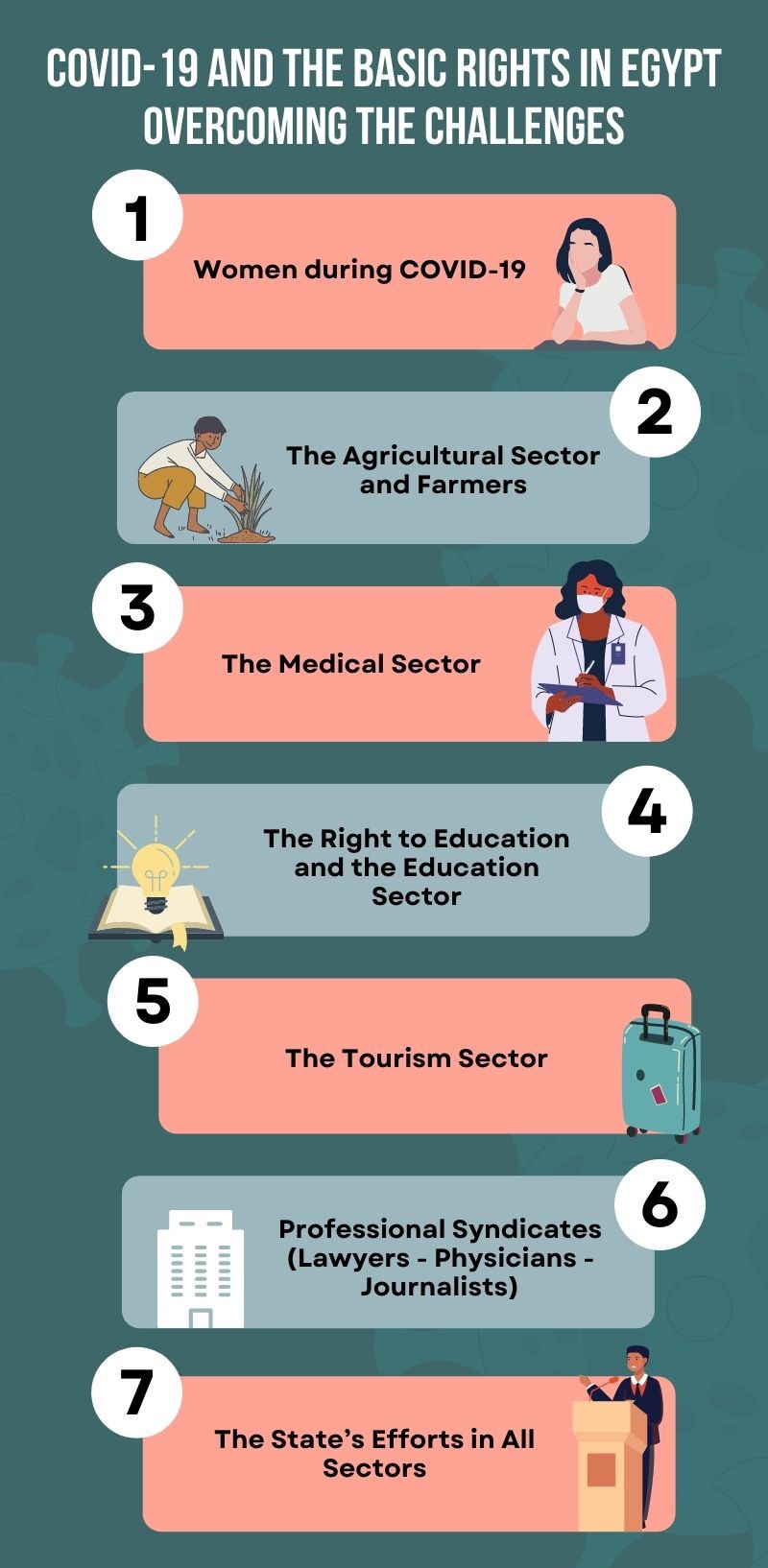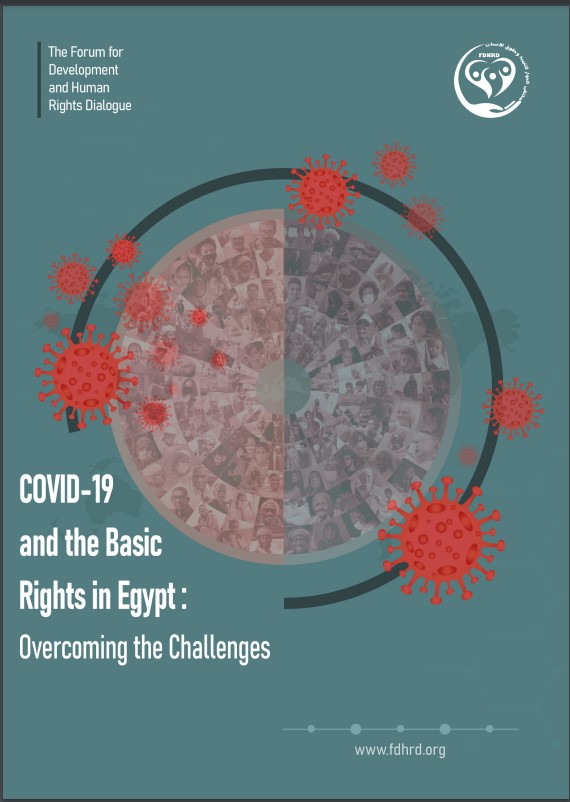Press Release
…………………………………………………………………..
Today, Monday, February 28, the Forum for Development and Human Rights Dialogue (FDHRD) issued a new book entitled “Covid-19 and the Basic Rights in Egypt: Overcoming the Challenges”.
The book reviewed the effects of the Corona pandemic on various individuals, groups and institutions, which are still ongoing and approaching its third consecutive year. The book also reviewed the most prominent challenges, the most important of which is how individuals and state institutions confront the pandemic and how to deal with it to achieve the least possible losses, and achieve health, food, medical, economic, educational and national security for individuals; Which benefits individuals, their security and the state’s economy.
The impact of the pandemic on the psychological, security and health safety of individuals has been demonstrated; such as anxiety attacks, affecting their jobs, and infection of many individuals with the Corona virus.
The book presented the most important challenges facing state institutions from an economic point of view, following the state of economic downturn and the air closure; which led to hindering the tourism sector and losses faced by workers in this sector.
Education has been affected by the repercussions of the pandemic; This is due to the state of quarantine to reduce the spread of the epidemic, which prompted the state to take precautionary measures and disrupt the study for the safety of students and their families, and there is no doubt that the medical and health sector was affected by the repercussions of the pandemic; The medical sector faced unusual pressure to receive the numbers of the injured and provide them with medical care and health isolation rooms away from the rest of the patients, in addition to the efforts of the medical sector to develop an appropriate and effective protocol for patients and to purchase vaccines as soon as they are provided; To ensure health security for citizens.
This publication dealt with several topics at the heart of the crisis, the most important of which are: women and domestic violence in the light of Corona, the challenges of the tourism sector in Egypt, the problems facing the medical sector, and the problems of education in the light of Corona. This publication also shed the light on the role of the Egyptian professional syndicates in dealing with the crisis to ensure the rights of its members, and addresses the efforts of the state in managing the crisis and solving the various problems it faced.
The book made several recommendations to address the challenges related to the Corona pandemic, and these recommendations center on combating domestic violence and ensuring women’s rights. For example: providing psychological support services to families, how to deal with the pressures arising from staying at home, promoting innovative ways and methods to spend time and strengthening means of family cohesion, engaging civil society and the media to start taking steps to address domestic violence, and disbursing cash aid in addition to moral aid to women who They provide for their families, divorced women, widows, and debtors.
The book made recommendations regarding small farmers and peasants, most notably: that the support includes granting the farmer small loans without interest, postponing the payment of installments to farmers in the Egyptian Agricultural Bank, and lifting customs on fodder; To address the price hike, especially in light of the high prices of production inputs, the need to review the prices of subsidized fertilizers, and the establishment of an agricultural solidarity fund to compensate farmers for losses, and maximize the benefit from agricultural research.
Among the most prominent recommendations made by the book to the education sector in light of the pandemic: updating the technological infrastructure in villages, rural areas and poorer areas, continuous training of teachers in poor villages on the use of modern technology, and activating the role of monitoring and follow-up performance in the Ministry of Education through training employees to use the Internet and dealing with electronic platforms; So that they can follow the performance of teachers in the virtual classroom, and benefit from international grants and international organizations (UNICEF and the World Bank) that help implement the reforms concerned to combat the virus.








